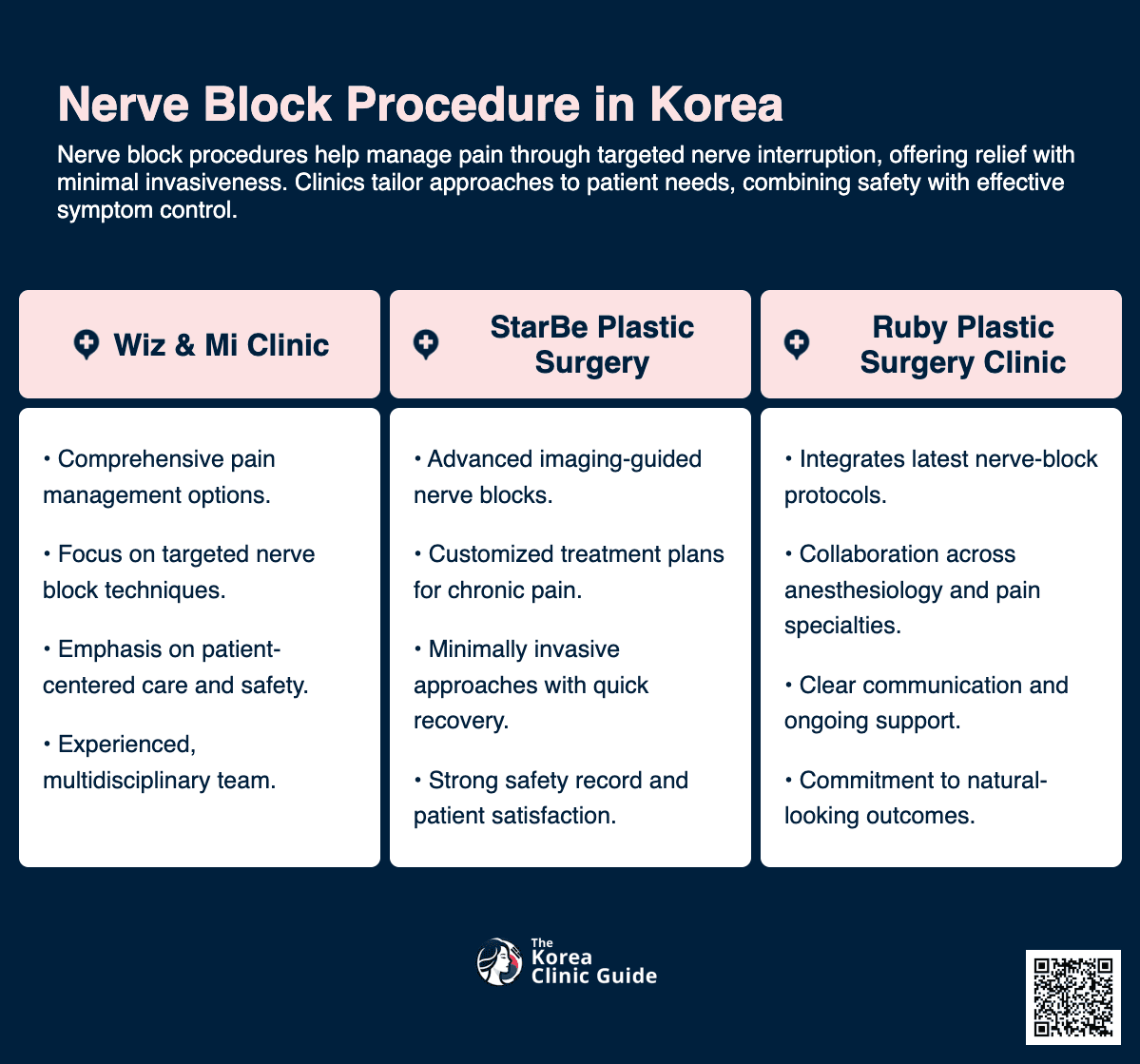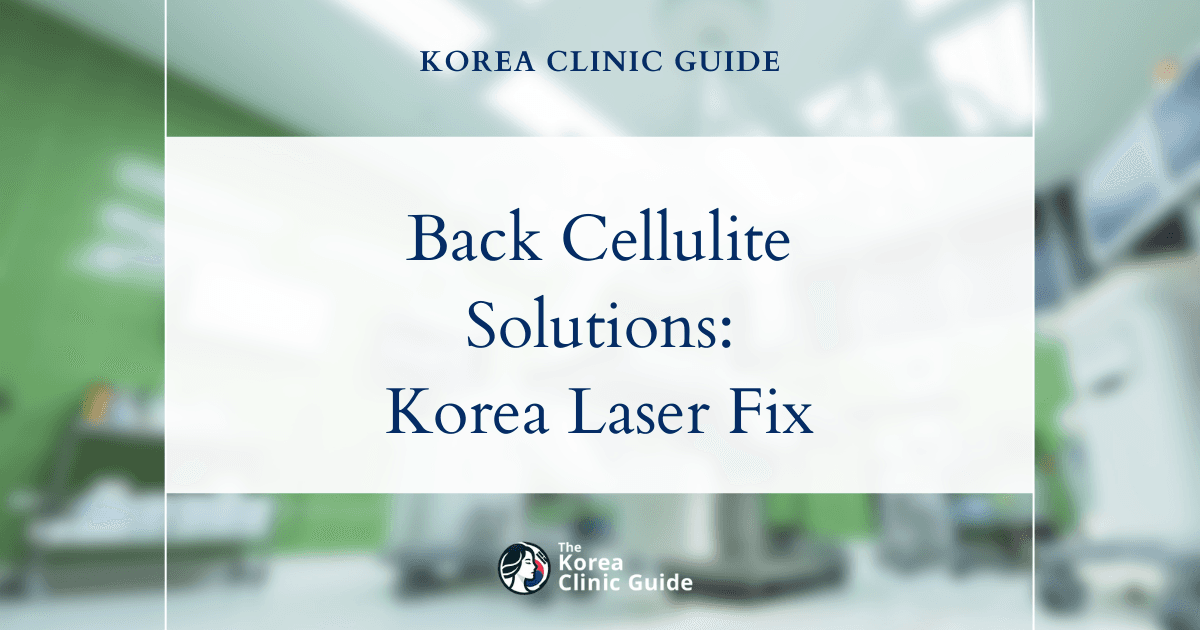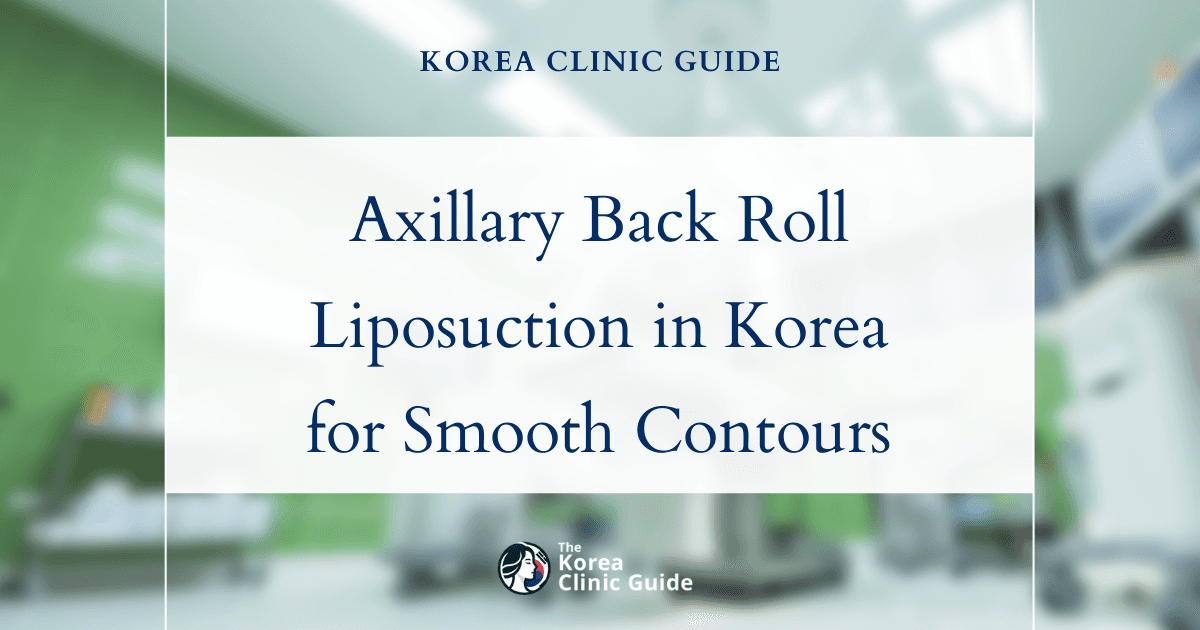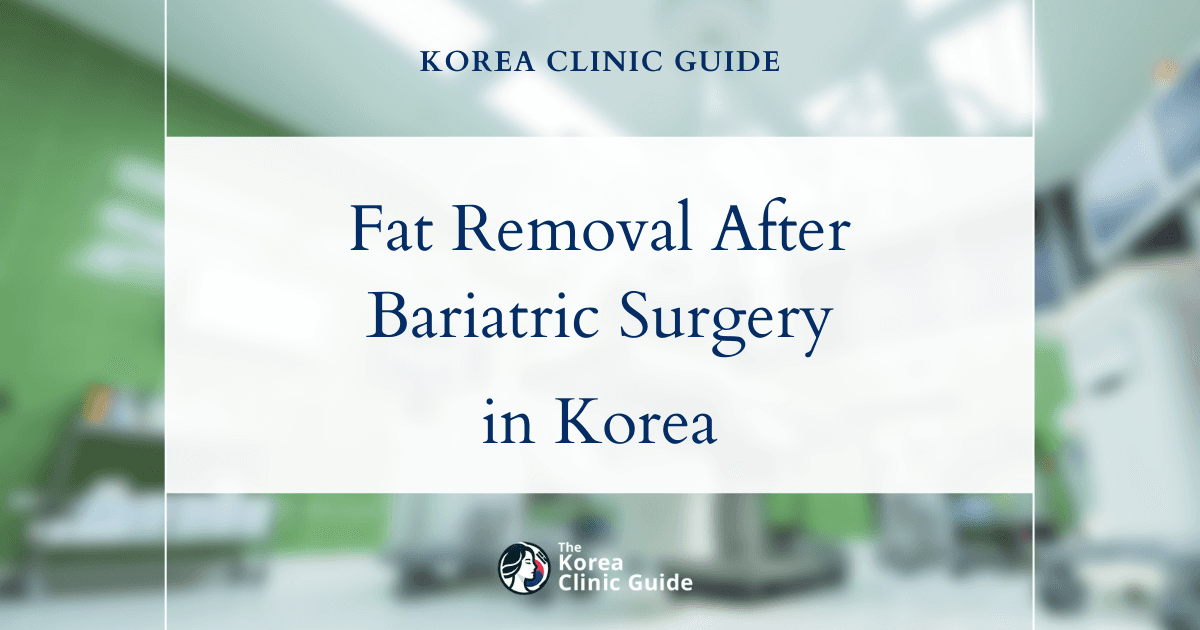Medical Tourism Blog
Nerve Block Procedure in Korea | Best Clinics, Costs, Procedure Types & More

Table of contents
- Nerve Block Procedure Overview
- Best Clinics in Korea for Nerve Block Procedure
- Benefits of Nerve Block Procedure in Korea
- Cost of Nerve Block Procedure in Korea
- Nerve Block Procedure Aftercare and Recovery
- Alternatives to Nerve Block Procedure
- Conclusion
Considering treatment in Korea? Everything you need to know e.g. — how to avoid scams, visas, interpreters, recovery tips — in our Medical Tourism Master Guide. Plan with confidence in minutes, not weeks!
Have you ever wondered about the secret behind Korea's reputation as a medical tourism hub? In this article, we explore how South Korea is transforming the landscape of chronic pain management with advanced nerve block procedures, offering cutting-edge solutions that attract patients from around the world seeking effective and affordable care.
Nerve Block Procedure Overview
A nerve block procedure, also known simply as a nerve block, is a medical intervention used primarily for pain management and diagnostic purposes. This technique involves the deliberate interruption of a particular nerve's function to alleviate pain or symptoms associated with specific medical conditions. The procedure can be used to target nerves in various parts of the body, providing a wide range of applications from treating chronic pain to assisting in surgical anesthesia.
Mechanism of Action
Nerve blocks work by administering agents that disrupt the transmission of pain signals to the brain. These agents can be local anesthetics, steroids, or other medications, depending on the condition being treated. By blocking the nerve's ability to send pain signals, the patient experiences relief from discomfort.
Types of Nerve Blocks
There are several types of nerve blocks, categorized based on their purpose and the area of application:
- Diagnostic Nerve Blocks: Used to determine the source of pain. For example, if a patient's pain decreases significantly after a diagnostic nerve block, it's likely the targeted nerve is the source.
- Therapeutic Nerve Blocks: Aimed at treating pain directly. These blocks may offer longer-lasting relief by using corticosteroids along with anesthetics to reduce inflammation.
- Sympathetic Blocks: Target the sympathetic nervous system and are often used for conditions like complex regional pain syndrome (CRPS).
- Peripheral Nerve Blocks: Focus on individual or groups of nerves, such as brachial plexus blocks for arm pain relief.
Procedure Details
The nerve block procedure involves several steps:
- Preparation: The patient is generally asked to avoid food and drink for a specific period before the procedure. They may also be advised to adjust their current medications under medical supervision.
- Positioning: The patient is positioned to allow easy access to the targeted nerve. Ultrasound or fluoroscopy may be used to guide the needle to the precise location.
- Administration: A thin needle is inserted near the nerve, and the medication is injected. The entire process is typically quick, often taking just a few minutes.
- Post-Procedure Monitoring: The patient is monitored for a short period to ensure there are no immediate adverse reactions. Depending on the type and location of the block, the patient might be advised to rest for a brief time following the procedure.
Indications and Applications
Nerve blocks are versatile and can be used in various medical contexts:
- Surgical Anesthesia: Often used in conjunction with general anesthesia to provide pain relief during and after surgery.
- Chronic Pain Management: Effective in conditions like sciatica, arthritis, and migraines.
- Acute Pain Relief: Employed in emergency settings, such as trauma or acute injuries, to provide immediate relief.
Risks and Considerations
Like all medical procedures, nerve blocks come with potential risks and side effects. These may include:
- Infection: Although rare, there is a risk of infection at the injection site.
- Bleeding: Patients with bleeding disorders or those on blood thinners may have an increased risk.
- Nerve Damage: In rare cases, the needle may cause temporary or permanent damage to the nerve.
- Allergic Reactions: Some patients may react adversely to the medications used.
Expected Outcomes
The outcomes of a nerve block can vary based on the individual and the purpose of the procedure. Some patients may experience immediate and significant relief, while others might benefit from a series of injections over time for optimal results. The duration of pain relief can also vary, ranging from a few hours to several months, depending on the specific treatment applied.
Safety and Side Effects
Nerve blocks, like general anesthesia, carry some risks and side effects. Common side effects include numbness, muscle weakness, and a small amount of leakage around the catheter entry point if a catheter is put in place. Some pain after surgery is normal, even with the block. However, as the nerve block wears off, it's essential to take oral medications early to manage this increase in pain. Serious complications are very rare (less than 0.1%) and may include large bruises, infections at the block site, or temporary persistent nerve symptoms.
Pain During Procedure
Many patients experience minor discomfort during nerve block placement, often described as less painful than a small IV catheter placement. Patients are given sedating medication and numbing of the skin before the nerve block placement to reduce discomfort.
Awareness During Surgery
Post-nerve block, the surgery target area will be numb. Patients can choose to be awake or asleep as they prefer. Most prefer to be asleep during surgery, and in such cases, heavy sedation or general anesthesia will be administered. Patients never see the surgery itself due to a large sterile drape placed between them and the surgical area.
Duration of Nerve Block
The duration of a nerve block depends on the type of block performed and the numbing medication used. For example, blocks for hand surgery usually last 6-8 hours, while those for pain after total knee replacement can last 12-24 hours. When administered through a nerve catheter, medication can last for 2-3 days.
Procedure Details
A nerve block is typically performed under ultrasound guidance, the modern standard that allows real-time visualization of the needle direction and anesthetic injection. The procedure generally takes about 5-20 minutes, with the needle part lasting around 1 minute. It takes another 15-45 minutes for the block to take full effect, depending on the area to be numbed, the medication used, and the individual’s response. The effectiveness of the block is always confirmed before surgery begins.
Pain Management Without Nerve Block
IV and oral medications are available to control pain during and after surgery, though they may not be as effective and can have side effects. These medications can be adjunct to the nerve block when needed.
Patient Consent
Patients always have the right to refuse a nerve block. Medical professionals will present the options, advise on the best protocols to minimize side effects, and ensure the safest anesthetic conditions. In rare cases where general anesthesia poses more significant risks, a nerve block may be strongly recommended. Often, a combination of nerve block and general anesthesia is used to reduce side effects and enhance recovery.
Who is Nerve Block Procedure for?
-
Patients undergoing surgery: Nerve blocks provide effective pain relief both during and after various types of surgery, including but not limited to hand surgery and total knee replacement surgery.
-
Individuals needing specific pain management: The procedure is highly effective for patients who need targeted pain management, especially when oral or IV pain medications are less desirable due to their side effects like respiratory depression, itching, nausea, and somnolence.
-
People with certain medical conditions: Those with conditions that may present higher risks for general anesthesia can benefit from nerve blocks as a safer alternative.
-
Patients aiming to reduce the use of pain medications: Nerve blocks can significantly decrease the need for additional pain medications, thus reducing potential side effects associated with oral or IV pain relievers.
-
Those experiencing chronic pain: Patients with chronic pain conditions, such as cancer-related pain or chronic regional pain syndrome, might find nerve blocks beneficial, especially when other treatments have not been successful.
-
Patients seeking diagnostic pain evaluation: Nerve blocks can serve as a diagnostic tool to determine the exact origin of pain, aiding in formulating a precise treatment plan for better pain management.
-
Individuals with arthritis and related pain conditions: People suffering from arthritis and other joint-related pain conditions can benefit from the targeted pain relief provided by nerve blocks.
-
Those with excessive sweating: Conditions such as hyperhidrosis can be managed using nerve blocks.
-
Patients with specific neurological conditions: People with conditions like migraines, sciatica, Raynaud’s syndrome, or pain caused by herniated discs may find nerve blocks to be an effective pain management solution.
Best Clinics in Korea for Nerve Block Procedure
Listed below are the best clinics in Korea for nerve block procedure:
| Clinic Name | Key Features | Special Techniques |
|---|---|---|
| Wiz & Mi Clinic | Comprehensive range of cosmetic, aesthetic, and medical procedures; expertise in body contouring and facial rejuvenation; focus on individualized care; personalized counseling and custom treatment plans | Holistic approach integrating surgical procedures (liposuction, mammoplasty), innovative fat grafting, cutting-edge skin and facial treatments, advanced nerve block procedures |
| StarBe Plastic Surgery | Premier clinic for nerve block procedures; focus on patient safety and natural beauty; experienced medical team; extensive portfolio of surgical and minimally invasive treatments | Advanced techniques in nerve block, laser lower eyelid fat repositioning, customized facial/nose surgeries, scar management, body contouring |
| Ruby Plastic Surgery Clinic | Advanced surgical and non-surgical treatments; modern facilities; tailored, patient-centric approach; emphasis on safety and satisfaction | Expertise in eye/nose surgery, face/breast/body contouring, anti-aging, nerve block procedures for pain management |
Wiz & Mi Clinic
Wiz & Mi Clinic, located in the heart of Myeongdong, Seoul, is renowned for its comprehensive range of cosmetic, aesthetic, and medical procedures focused on enhancing natural beauty through advanced techniques and individualized care. The clinic brings together expertise in body contouring, facial rejuvenation, and a variety of minimally invasive treatments, ensuring patients receive effective and safe results tailored to their unique goals.
Among its extensive offerings, Wiz & Mi Clinic is distinguished for its holistic approach that integrates surgical procedures such as liposuction and mammoplasty, innovative fat grafting methods, and cutting-edge skin and facial treatments. With a commitment to patient-centered care, the clinic provides personalized counseling and develops custom treatment plans, making it a trusted destination for those seeking top-quality nerve block procedures and other advanced aesthetic treatments in Korea.
Find more about this clinic here: Wiz & Mi Clinic Website
StarBe Plastic Surgery
StarBe Plastic Surgery in Seomyeon stands out as the premier clinic for Nerve Block Procedures in Korea thanks to its unwavering commitment to patient safety and its philosophy of achieving natural beauty tailored to each individual. The clinic’s experienced medical team is at the forefront of advanced surgical and non-surgical techniques, including a wide array of signature procedures such as laser lower eyelid fat repositioning, customized facial and nose surgeries, as well as specialized scar management and body contouring solutions. This expertise is complemented by a comprehensive portfolio of both surgical and minimally invasive treatments, ensuring patients receive personalized care that addresses both functional and aesthetic needs. Whether seeking sophisticated nerve block solutions for pain management or expert care in complementary procedures, patients at StarBe benefit from a holistic approach that prioritizes optimal results, safety, and natural harmony in appearance.
Find more about this clinic here: StarBe Plastic Surgery Website
Ruby Plastic Surgery Clinic
Ruby Plastic Surgery Clinic in Sinsa stands at the forefront of aesthetic medicine in Korea, delivering advanced surgical and non-surgical treatments designed to enhance patients' natural beauty. The clinic is equipped with modern facilities and a team of committed professionals, each dedicated to ensuring the safety, comfort, and satisfaction of every patient. From consultation to recovery, Ruby prioritizes a tailored approach, understanding that each individual’s needs and aspirations are unique.
Although the clinic is renowned for its expertise in areas such as eye and nose surgery, face contouring, breast and body contouring, and anti-aging procedures, Ruby Plastic Surgery Clinic also provides effective pain management options such as nerve block procedures. By combining state-of-the-art techniques with personalized care, the clinic addresses both aesthetic and functional concerns, offering comprehensive solutions in a welcoming and sophisticated environment.
Find more about this clinic here: Ruby Plastic Surgery Clinic Website
Benefits of Nerve Block Procedure in Korea

Korea has emerged as a leading destination for medical procedures, including nerve block treatments. Here are some of the key benefits of seeking a nerve block procedure in this country:
Advanced Medical Technology
Korea is renowned for its state-of-the-art medical technology, which often includes the latest equipment and techniques for nerve block procedures. Advanced imaging systems and precise injection techniques ensure higher success rates and improved patient outcomes.
Highly Skilled Medical Professionals
Korean doctors and medical staff are highly trained, often having studied and practiced in top institutions worldwide. This high level of expertise helps to ensure that nerve block procedures are performed with a high degree of skill and care, minimizing risks and complications.
Comprehensive Pain Management
Korea offers a holistic approach to pain management, often integrating nerve block procedures with other therapies such as physical therapy, acupuncture, and traditional Korean medicine. This multidisciplinary approach can provide more effective and long-lasting pain relief.
Cost-Effective Treatment
Medical procedures in Korea are often more cost-effective compared to Western countries. Despite the lower cost, the quality of care is not compromised, making it an attractive option for those seeking affordable yet high-quality medical treatment.
Fast and Efficient Service
Korean medical facilities are known for their efficiency and streamlined processes. Patients can often get quick appointments, undergo pre-procedure evaluations, and receive treatment in a timely manner. This can be particularly beneficial for those who need urgent pain relief.
Patient-Centered Care
Medical centers in Korea focus heavily on the patient experience. Many hospitals and clinics offer personalized care plans and ensure that patients are well-informed and comfortable throughout the treatment process. Enhanced patient support services, such as multilingual staff and patient coordinators, also help ease the treatment journey for international patients.
High Success Rates
Due to the combination of advanced technology, skilled practitioners, and comprehensive care, nerve block procedures in Korea often boast high success rates. This can lead to significant improvements in quality of life, reduced pain, and increased mobility for patients.
Accessibility
Korea’s healthcare system is highly accessible to international patients, with many hospitals offering packages that include transportation, accommodation, and even sightseeing options. This makes it easier for patients to navigate their medical journey while in a foreign country.
Quality Accredited Facilities
Many medical facilities in Korea are accredited by international organizations such as the Joint Commission International (JCI). This ensures that the hospitals meet high standards of safety, hygiene, and patient care, providing an extra layer of reassurance for patients.
By choosing to undergo a nerve block procedure in Korea, patients can benefit from a combination of advanced medical technology, skilled practitioners, comprehensive pain management approaches, and efficient, cost-effective care.
Cost of Nerve Block Procedure in Korea
The cost of a nerve block procedure in Korea can be significantly lower compared to other countries, particularly the United States. On average, the price for this procedure in Korea ranges from $500 to $1,200 USD. This cost usually covers the entire treatment, including consultation fees, diagnostic tests, the procedure itself, and post-operative care.
In the United States, however, the cost of a nerve block procedure can be substantially higher. Prices can range from $1,000 to $5,000 USD, depending on various factors such as the complexity of the procedure, the location of the healthcare facility, and the level of insurance coverage a patient has. These estimates often do not include additional fees for consultation, diagnostic tests, and post-operative care, which can further increase the total cost.
Nerve Block Procedure Aftercare and Recovery
Immediate Post-Procedure Care
After undergoing a nerve block procedure, the treated area will be numb. This is normal and expected as the local anesthetic takes effect. Depending on the medication used, this numbness can last anywhere from 6 hours to up to 24 hours. If a nerve catheter is used, it may continue to deliver anesthetic for several days.
Pain Management
It is common to experience some degree of pain as the nerve block begins to wear off. It is critical to start taking oral pain medications early to help manage this pain. Despite the initial numbness, once the anesthetic effects diminish, oral or IV pain medications prescribed by your healthcare provider should be taken as directed. Having fewer side effects than traditional pain medications, the nerve block can reduce the overall need for additional medications.
Activity and Mobility
Patients are usually advised to rest and avoid strenuous activities immediately after the procedure. Given the potential muscle weakness and numbness in the treated area, caution is necessary to avoid injuries. Avoid placing hot or cold objects directly on the numb area, as you might not feel temperature changes or pain, leading to burns or injuries. Mobility can be resumed gradually, following the specific recommendations provided by your healthcare team.
Observation and Monitoring
It’s important to monitor the injection site for any signs of complications, such as bruising, swelling, or infection. Common minor side effects include a little bit of leakage around the catheter entry point. Serious complications are rare (<0.1%), but should any unusual symptoms persist, such as prolonged numbness, muscle weakness, or signs of infection (fever, increased redness, or pus), contact your healthcare provider immediately.
Follow-Up Care
Follow-up appointments may be scheduled to assess the effectiveness of the nerve block and manage ongoing pain. During these visits, your healthcare provider may provide further instructions regarding medication adjustments or recommend additional pain management strategies if necessary.
Long-Term Recovery
The duration of the nerve block's effectiveness depends on the type of block and medication used. The initial numbness may be followed by a period of pain as the anesthetic wears off. To aid in a smoother transition, ensure that pain medications are taken preemptively and as directed. Recovery times vary with individual response and the type of surgery performed.
Keeping a log of your pain levels and any side effects can be beneficial for subsequent consultations, providing your healthcare provider with useful information to tailor future pain management techniques effectively.
Important Considerations
- Avoid self-driving: It is strongly recommended that patients arrange for someone to drive them home after the procedure due to sedation and numbness effects.
- Hydration and Nutrition: Ensure you stay hydrated and maintain a balanced diet to support overall recovery.
- Adherence to Instructions: Always follow the detailed post-care instructions provided by your healthcare provider. This includes taking prescribed medications correctly and attending all scheduled follow-up appointments.
By closely adhering to these aftercare and recovery guidelines, patients can help maximize the benefits of the nerve block procedure, minimize discomfort, and ensure a smoother postoperative recovery.
Alternatives to Nerve Block Procedure
While nerve blocks are commonly used for pain management, they may not be suitable for everyone. Here are three alternatives to consider:
1. Epidural Anesthesia
Epidural anesthesia involves the injection of anesthetic drugs into the epidural space around the spinal cord. It is often recommended for labor pain relief as well as for surgeries involving the lower extremities. The medication delivered via an epidural can provide continuous pain relief without the need for frequent injections.
Key Points:
- Procedure: An anesthetic is injected outside the spinal cord.
- Uses: Commonly used during childbirth and lower extremity surgeries.
- Advantages: Provides effective pain relief over an extended period (often several hours).
2. Spinal Anesthesia
Spinal anesthesia involves the injection of anesthetic drugs directly into the cerebrospinal fluid surrounding the spinal cord. It is typically used for surgeries involving the lower abdomen, pelvis, and legs. This method leads to a rapid onset of anesthesia with excellent muscle relaxation and pain relief.
Key Points:
- Procedure: An anesthetic is injected into the cerebrospinal fluid.
- Uses: Commonly used for surgeries involving the lower abdomen, pelvis, and legs.
- Advantages: Quick onset of action and effective pain control, especially useful for procedures of short to moderate duration.
3. Peripheral Nerve Blocks
Peripheral nerve blocks involve the injection of anesthetic near specific nerves or nerve clusters to numb a particular area of the body. This an alternative to general anesthesia for certain types of surgeries, particularly those performed on the limbs (e.g., hand, arm, leg, foot surgeries).
Key Points:
- Procedure: Anesthetic is injected near specific nerves using ultrasound guidance.
- Uses: Useful for surgeries involving the limbs and specific body regions.
- Advantages: Targets pain relief to specific areas, minimizing systemic side effects and permitting the patient to remain conscious if desired.
Each of these alternatives comes with its own set of benefits and considerations, making them viable options based on the patient's medical condition, type of surgery, and personal preferences. Your medical team will help you decide the best approach for your situation.
Conclusion
In conclusion, the nerve block procedure in Korea has emerged as a highly effective and advanced treatment modality for managing chronic pain and various neurological conditions. Leveraging cutting-edge technology and the expertise of skilled medical professionals, Korean healthcare facilities offer comprehensive pain management solutions tailored to individual patient needs. The integration of rigorous training, innovative research, and a patient-centric approach has positioned Korea as a leading destination for nerve block treatments, attracting both local and international patients seeking relief from debilitating pain. As the medical landscape continues to evolve, Korea remains at the forefront with its commitment to excellence and continuous improvement in pain management techniques.













